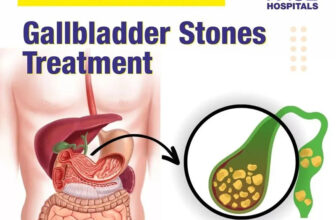
Pregnancy is a transformative experience, and each stage comes with its own set of pregnancy symptoms. While many of these are perfectly normal, it’s important to know which symptoms are typical and which ones require medical attention. Understanding the signs and knowing when to seek help can ensure both the mother’s and baby’s health throughout the pregnancy journey.
Understanding the Spectrum of Pregnancy Symptoms:
The experience of pregnancy is highly individual. What one woman experiences, another might not. However, there are some common threads that weave through the nine months. Let’s explore some of the most frequent pregnancy symptoms and what you can expect:
Early Pregnancy (First Trimester):
-
Morning Sickness (and its less catchy cousin, “All-Day Sickness”): Nausea and vomiting, often referred to as morning sickness, are a hallmark of early pregnancy. While the name suggests it occurs in the morning, it can strike at any time of day. For most women, it subsides by the second trimester. However, if the nausea and vomiting are severe and persistent, leading to dehydration or an inability to keep food down, it could be a sign of hyperemesis gravidarum, a condition requiring medical intervention. Don’t hesitate to contact your healthcare provider if you’re concerned.
-
Fatigue: The Overwhelming Exhaustion: The surge in hormones, particularly progesterone, coupled with the body’s increased workload, can lead to overwhelming fatigue, especially during the first trimester. This exhaustion is perfectly normal and a sign that your body is working hard to create a nurturing environment for your baby. Rest is your best friend during this time. However, if the fatigue is excessive and accompanied by other symptoms like shortness of breath or dizziness, it could indicate anemia, a common condition during pregnancy that is easily treatable. Discuss any concerns with your doctor.
-
Breast Changes: Tenderness and Growth: One of the earliest signs of pregnancy is often breast tenderness, swelling, and increased sensitivity in the nipples. These changes are driven by hormonal fluctuations and prepare your breasts for breastfeeding. You might notice your breasts feel fuller and heavier, and the areolas may darken.
-
Spotting and Light Bleeding: When to Worry: While some light spotting or implantation bleeding can occur in early pregnancy, especially around the time of a missed period, it’s crucial to distinguish it from heavier bleeding. Any bleeding that is heavier than spotting, or that is accompanied by abdominal pain, cramping, or dizziness, should be immediately reported to your healthcare provider. These symptoms can be indicative of a miscarriage or ectopic pregnancy, requiring prompt medical attention.
-
Food Cravings and Aversions: The Quirky Changes: Pregnancy can significantly alter your sense of taste and smell, leading to intense cravings for certain foods or a sudden aversion to foods you previously enjoyed. These changes are thought to be linked to hormonal shifts. While indulging in healthy cravings is generally fine, it’s important to maintain a balanced diet. If you experience cravings for non-food items like clay, dirt, or ice (a condition known as pica), it could indicate a nutritional deficiency. Consult your healthcare provider immediately.
Later Pregnancy (Second and Third Trimesters):
-
Swelling and Discomfort: The Body Adapts: As your baby grows, you might experience mild swelling, particularly in your ankles and feet. This is usually due to increased fluid retention and the pressure of the growing uterus. However, sudden or severe swelling, especially in the hands, face, or legs, combined with a headache, vision changes, or upper abdominal pain, can be a sign of preeclampsia, a serious condition requiring immediate medical attention.
-
Back Pain: Carrying the Weight: The added weight of the baby and the hormonal changes that relax your ligaments can contribute to back pain, especially in the later trimesters. Maintaining good posture, practicing gentle exercises, and using supportive pillows can help alleviate discomfort.
-
Changes in Fetal Movement: A Vital Sign: As your pregnancy progresses, you’ll start to feel your baby move. Monitoring these movements is an important way to gauge your baby’s well-being. While the frequency and intensity of movements can vary, it’s important to be aware of your baby’s typical movement patterns. If you notice a significant decrease in fetal movement, or if you have any concerns, contact your healthcare provider immediately.
When to Seek Medical Advice:
While many pregnancy symptoms are a normal part of the process, it’s crucial to know when to seek medical attention. Contact your healthcare provider immediately if you experience any of the following:
- Severe or persistent vomiting
- Heavy bleeding or spotting
- Abdominal pain or cramping
- Decreased fetal movement
- Severe headache
- Vision changes
- Swelling in the face, hands, or legs (especially if accompanied by other symptoms)
- Fever
- Painful urination
- Dizziness or fainting
Empowering Yourself Through Knowledge:
Understanding the various stages of pregnancy and the associated symptoms is essential for a healthy and positive experience. By staying informed, communicating openly with your healthcare provider, and paying attention to your body’s signals, you can navigate the nine months with confidence and joy, preparing to welcome your little one into the world. Remember, every pregnancy is unique, so don’t hesitate to reach out to your doctor with any questions or concerns. They are your partners in this incredible journey.







